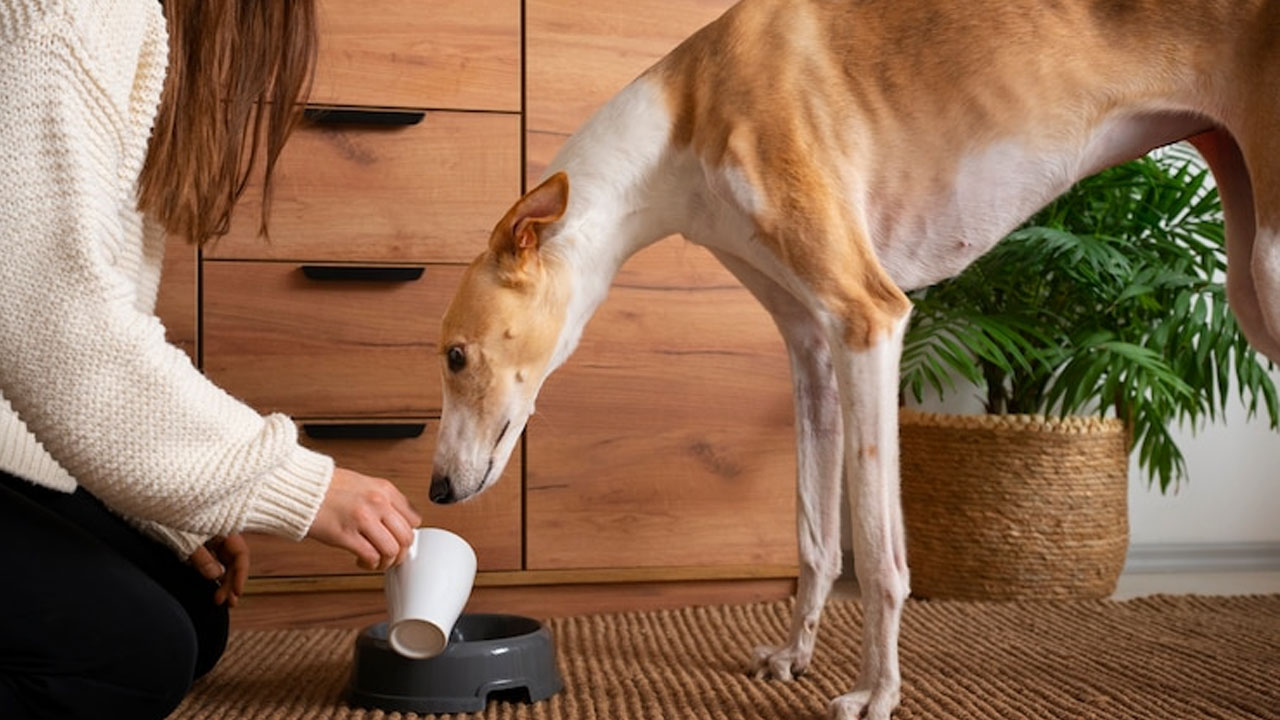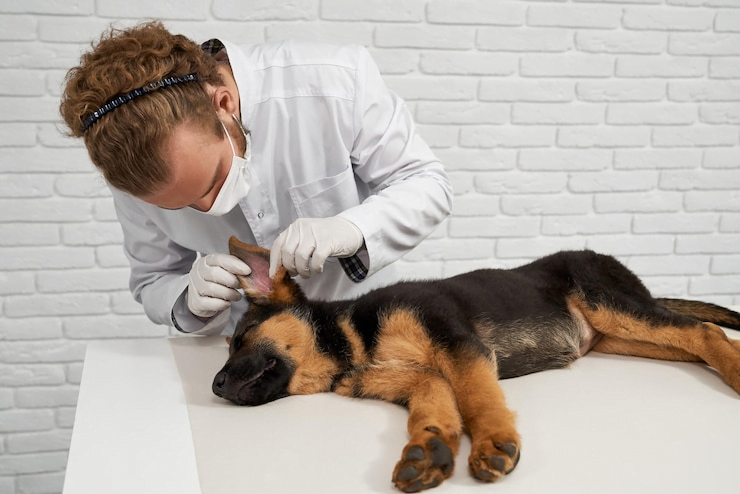When you notice your dog has a bleeding anus, it can be pretty alarming. Knowing what might be causing this issue and knowing some effective home remedies can help you better manage the situation. This comprehensive guide covers everything from common causes to specific home treatments that can relieve your furry friend, Home Remedies for Dog Bleeding Anus.
The Issue
Bleeding from the anus in dogs is not a minor issue. It can indicate various health problems that need to be addressed promptly. While some causes are minor and can be treated at home, others require immediate veterinary attention. Observing your dog’s overall behavior and symptoms is crucial to determining the best action.
Importance of Immediate Attention
Ignoring the issue or delaying treatment can lead to more severe complications. Therefore, recognizing the signs early and understanding how to provide initial care can significantly affect your dog’s recovery process.
Early Diagnosis: Prompt attention allows for early diagnosis of the underlying cause of the bleeding, which is essential for effective treatment.
Prevent Further Complications: Identifying and addressing the root cause early can help prevent the condition from worsening and potentially causing more severe health issues.
Pain Relief: Dogs experiencing bleeding from the anus may be in pain or discomfort. Immediate attention can provide pain relief and improve your dog’s well-being.
Prevent Infections: Prompt veterinary care can help prevent infections that may arise from the bleeding, especially in cases of trauma, anal gland issues, or gastrointestinal conditions.
Treatment Options: Early intervention enables the veterinarian to provide appropriate treatment options tailored to your dog’s specific condition, increasing the chances of a successful outcome.
Peace of Mind: Seeking immediate attention gives you peace of mind, knowing that your dog is receiving the necessary care and attention to address their health issue.
Quality of Life: Timely treatment and management of the underlying cause of bleeding can improve your dog’s quality of life and overall well-being.
Remember, any instance of bleeding from your dog’s anus should be taken seriously, and it’s always best to consult with a veterinarian for an accurate diagnosis and appropriate treatment plan. Immediate attention can help ensure the health and safety of your beloved pet.
Common Causes of Bleeding Anus in Dogs
Dogs have two small glands located near their anus. When these glands become infected or impacted, they can cause bleeding.

Infections: Bacterial or fungal infections in the anal area can lead to bleeding and discomfort.
Parasites: Worms and other parasites can cause irritation and bleeding in the anal region.
Trauma: Injuries from accidents, fights, or foreign objects can result in a bleeding anus.
Hemorrhoids: Just like humans, dogs can develop hemorrhoids, which can cause bleeding.
Anal Gland Issues: Anal gland problems such as impaction, infection, or abscesses can lead to bleeding from the anus.
Trauma: Trauma to the rectal area due to injury, foreign objects, or rough play can cause bleeding.
Inflammatory Bowel Disease (IBD): Conditions like colitis or IBD can cause inflammation and irritation in the gastrointestinal tract, leading to bleeding.
Parasites: Intestinal parasites such as worms or protozoa can cause irritation and inflammation in the intestines, leading to bleeding.
Rectal Tumors: Tumors or polyps in the rectal area can cause bleeding, especially in older dogs.
Home Remedies for Anal Gland Issues
Warm Compress: Applying a warm compress to the anal area can help soothe discomfort and reduce swelling.
Fiber-Rich Diet: Increasing fiber in your dog’s diet can help with regular bowel movements and prevent anal gland issues.
Proper Hydration: Ensuring your dog stays hydrated can aid in digestion and prevent constipation, which can exacerbate anal gland problems.
Regular Expression: Regularly expressing your dog’s anal glands can help prevent issues. You can learn this from your vet or a professional groomer.
Dietary Adjustments: Adding more fiber to your dog’s diet can help prevent anal gland problems. You can include canned pumpkin or fiber supplements after consulting with your vet.
Warm Compress: Applying a warm compress to the anal area can help relieve discomfort and promote drainage of the glands.
Regular Baths: Keeping your dog’s anal area clean through regular baths can help prevent infections and discomfort.
Consult a Veterinarian: If your dog is experiencing recurrent anal gland problems, it’s essential to consult a veterinarian for proper diagnosis and treatment. They may recommend expressing the glands or other medical interventions.
Treating Infections Naturally
Natural treatment refers to the use of natural remedies and holistic approaches to address infections. This can include herbs, essential oils, and other organic substances known for their antimicrobial properties. Methods often emphasize boosting the body’s immune system, promoting overall health, and reducing reliance on synthetic medications. Common natural treatments involve garlic, honey, echinacea, and probiotics, which are believed to help fight bacteria, viruses, and fungi naturally. Learn effective Home Remedies for Dog Bleeding Anus with our comprehensive guide. Ensure your pet’s comfort and health..
Dealing with Parasites at Home
Effectively managing parasites at home involves a combination of prevention and treatment strategies. Regular cleaning, proper hygiene, and natural remedies can help keep common parasites like fleas, ticks, and worms at bay. Essential oils, diatomaceous earth, and regular grooming are natural methods to prevent infestations. Maintaining a clean living environment and ensuring pets receive appropriate parasite preventatives can significantly reduce the risk. Early detection and prompt action are crucial in managing and preventing the spread of parasites in your home.
Natural Remedies for Trauma

This term refers to holistic approaches and treatments derived from natural sources that help individuals heal from physical, emotional, or psychological trauma. These remedies can include herbal supplements, essential oils, meditation, yoga, acupuncture, and dietary changes. They aim to support the body’s natural healing processes, reduce stress, and promote overall well-being without relying on synthetic drugs or invasive procedures.
Hemorrhoid Relief at Home
Warm Sitz Baths: Soaking in a warm bath (sitz bath) can help alleviate the discomfort and itching associated with hemorrhoids. Do this several times a day for about 10-15 minutes each time.
Topical Treatments: Over-the-counter creams, ointments, or pads containing witch hazel or hydrocortisone can help reduce pain and swelling.
Fiber-Rich Diet: Eating high-fiber foods like fruits, vegetables, whole grains, and legumes can soften your stool and make bowel movements more accessible, reducing the strain on your hemorrhoids.
Hydration: Drink plenty of water to keep yourself hydrated. Adequate hydration helps prevent constipation, which can worsen hemorrhoids.
Avoid Straining: Avoid straining during bowel movements. If needed, use stool softeners to make the process easier.
Conclusion
Taking care of your dog’s anal health is crucial for their overall well-being. While home remedies can relieve and manage minor issues, knowing when to seek professional veterinary care is essential. Combining preventative measures with attentive home care can help your furry friend stay healthy and happy.
FAQ
Can I use over-the-counter creams?
Consult your vet before using over-the-counter creams, as some ingredients may be unsafe for dogs.
How long should I try home remedies before seeing a vet?
If there’s no improvement within a few days or symptoms worsen, seeking veterinary care is essential.
Are there any risks with home remedies?
While generally safe, some home remedies might cause allergic reactions or other side effects. Therefore, it is essential to constantly monitor your dog closely.
What if my dog is allergic to a remedy?
Discontinue use immediately and consult your vet for alternative treatments.
Can diet changes help prevent future issues?
A balanced diet rich in fiber and nutrients can promote digestive health and prevent many issues.













